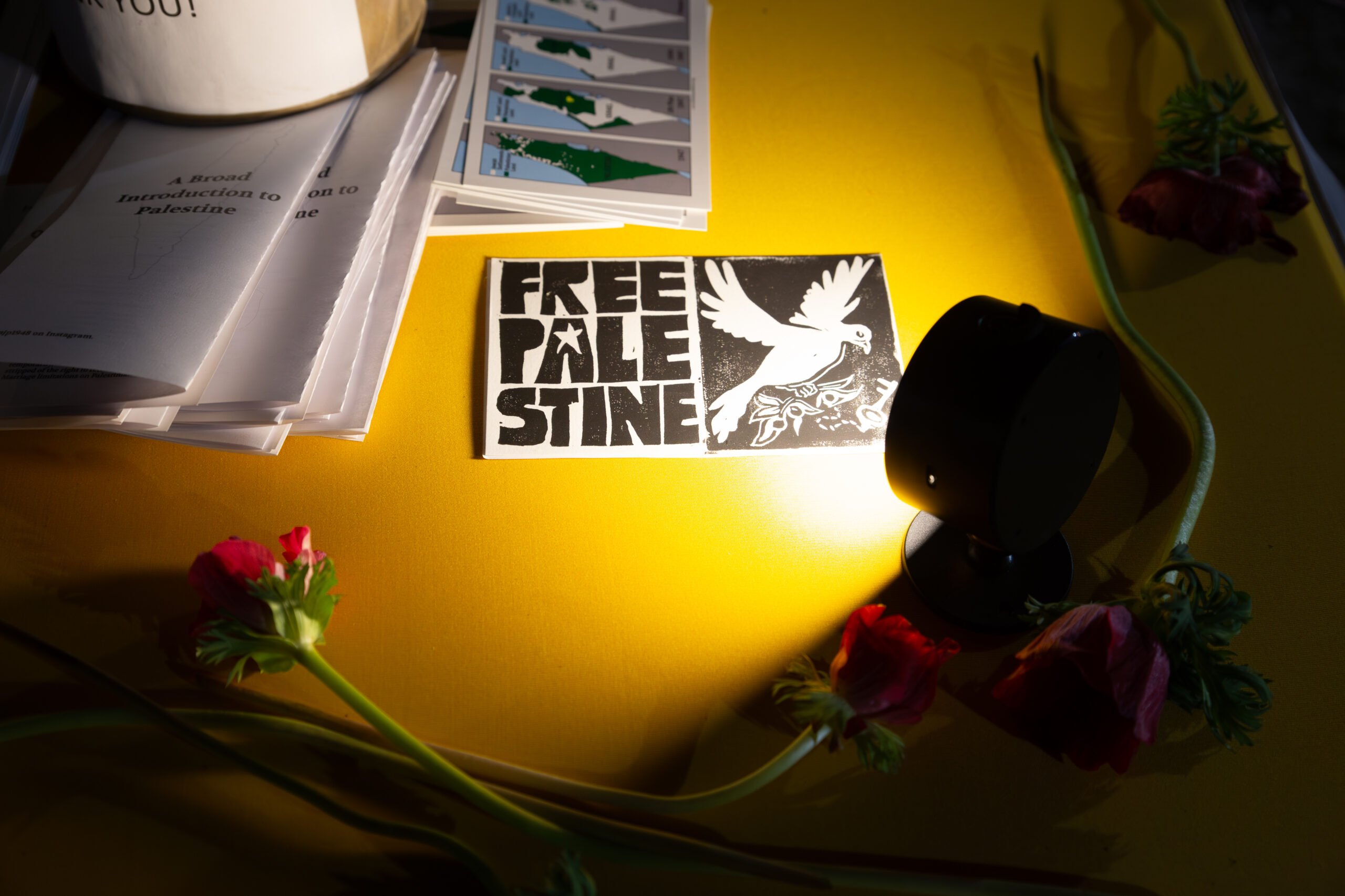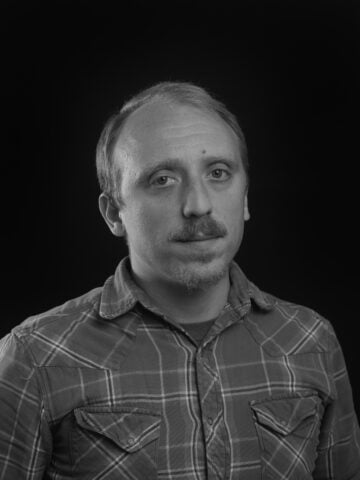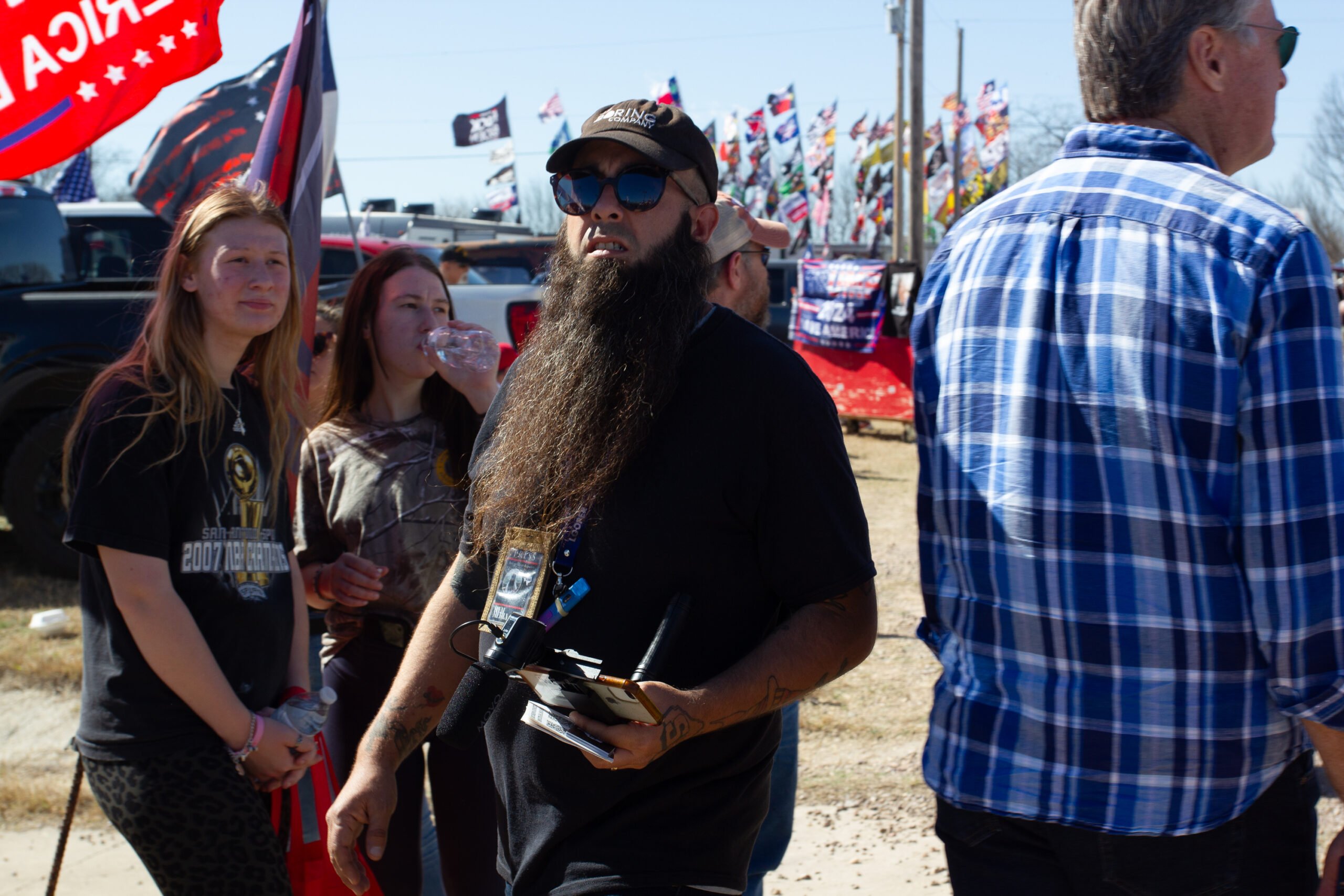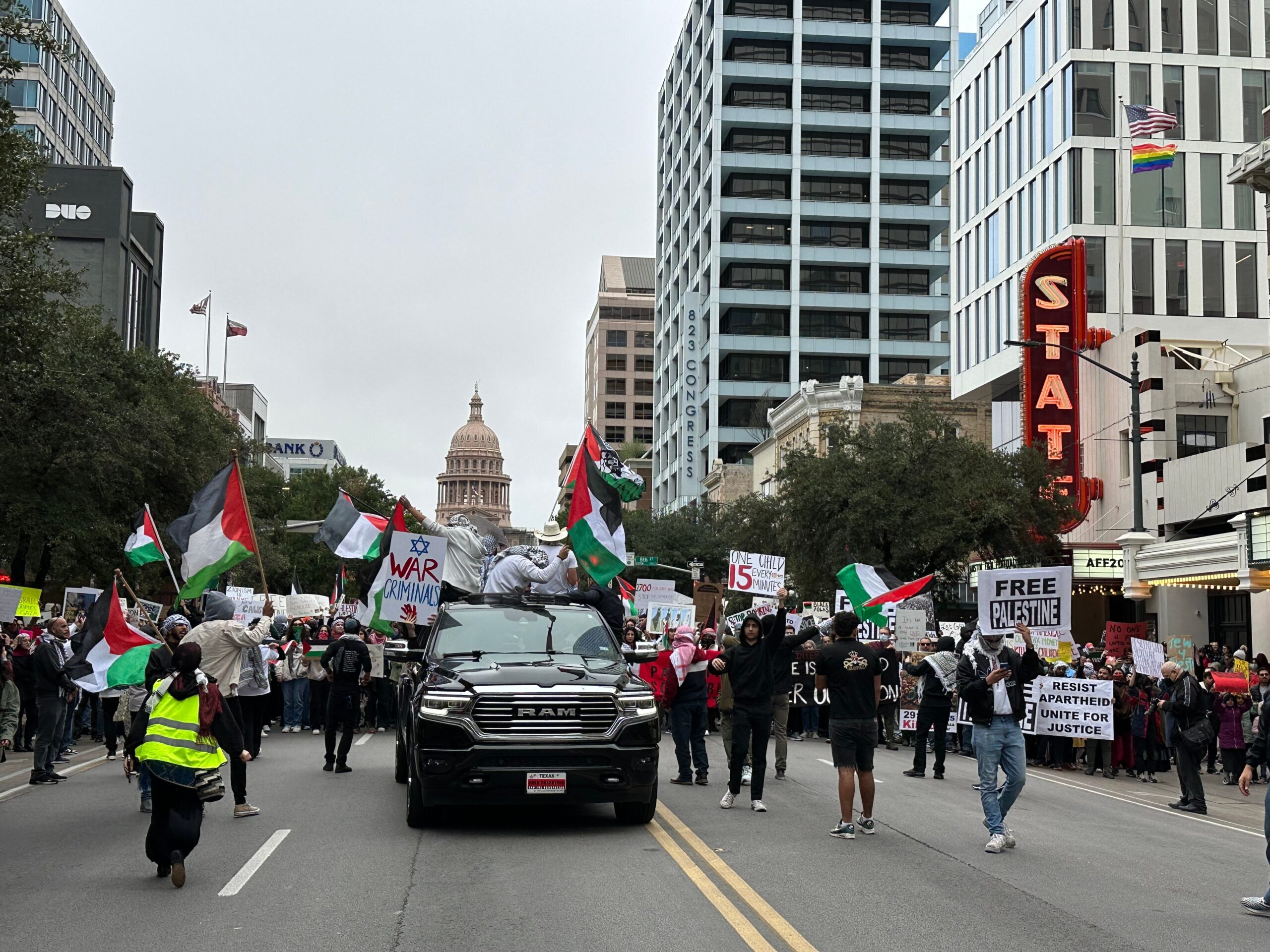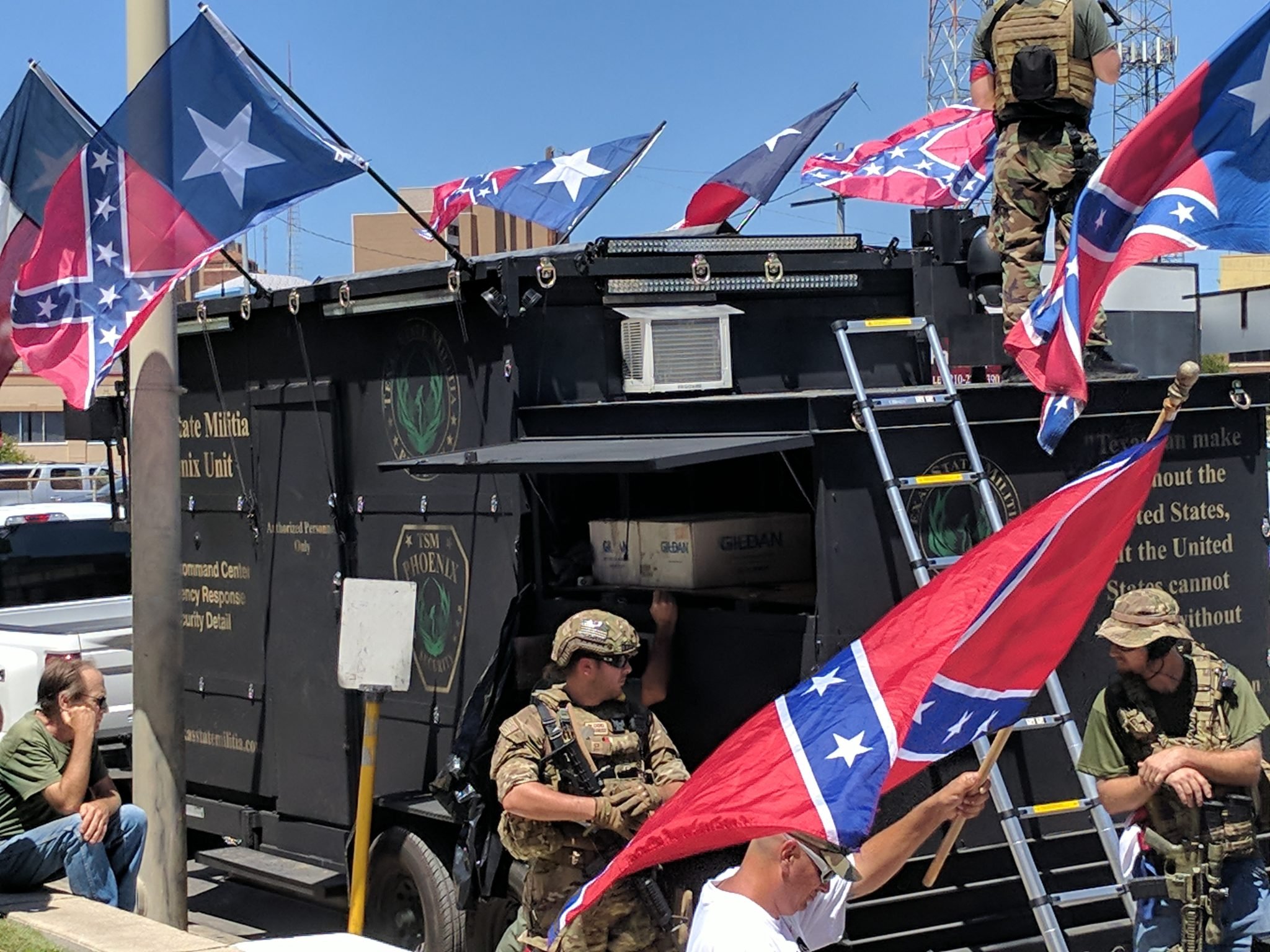On a three-dog January night in southside San Antonio, a brightly painted coffee-and-beer joint burbles to life with a bundled-up crowd, chiefly young and hip, many sporting black-and-white keffiyehs—the scarves that serve as worldwide symbols of solidarity with Palestine.
Ringing a spacious side yard, vendors arrange wares on tables. Music equipment for a DJ and band waits on a covered patio. String lights line the property’s perimeter.
The occasion: a show and market billed as “Puro Pinche Palestina,” a coinage that would only suffer from direct translation but that is basically a very San Antonio way of declaring support for the Palestinian cause.
A pair of “mutual aid” groups—peer-to-peer alternatives to traditional charities—planned the evening. The event’s earnings will go to an outfit called San Antonio for Justice in Palestine (SAJP), which is pushing for local responses, such as a city council ceasefire resolution, to the horrors unfolding in the Levant.
“Being in San Antonio and so far away from everything, it’s hard to feel connected to the struggle for the liberation of Palestine,” says Basseema Abouassaad, a Palestinian organizer with SAJP. “But whenever we come to events like this, along with protests, along with rallies or art builds or classes or things like that, people can literally turn 360 [degrees] … to get a visual of how many people give a fuck.”
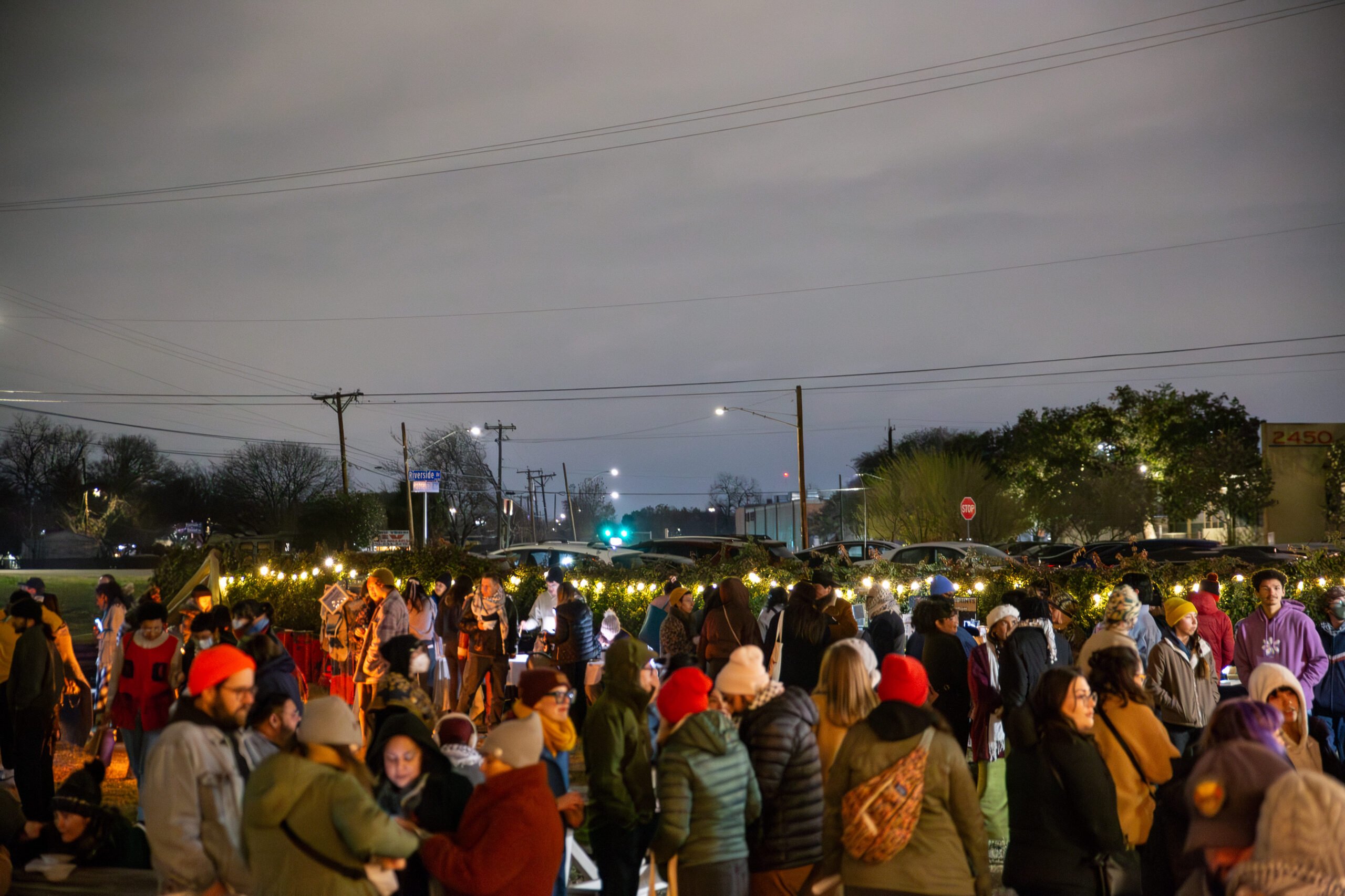
A series of indie rock and punk bands strum the night along. Between sets, the DJ spins Palestinian and South African tracks. (In December, South Africa brought charges of genocide against Israel over the latter’s actions in Palestine.) Attendees peruse the vendors’ offerings: art prints, jewelry, zines, crystals, tarot cards, books both new and used. Friends huddle around firepits to ward off the chill.
Half a world away in the Gaza Strip, the 140-square-mile slice of Palestinian territory abutting Egypt and the Mediterranean Sea, the day’s news features such headlines as “Israeli drones attack hospital in southern Gaza,” “The desperate struggle to find food in Gaza,” and “A kitchen table amputation without anesthetic in Gaza is one of many.” The death toll in the Strip, population 2.2 million, soars toward 30,000 as Israel prosecutes its campaign of vengeance against Hamas, the militant group governing Gaza that killed 1,200 Israelis on October 7. Most of Israel’s victims, per the Gaza Health Ministry, are women and children.
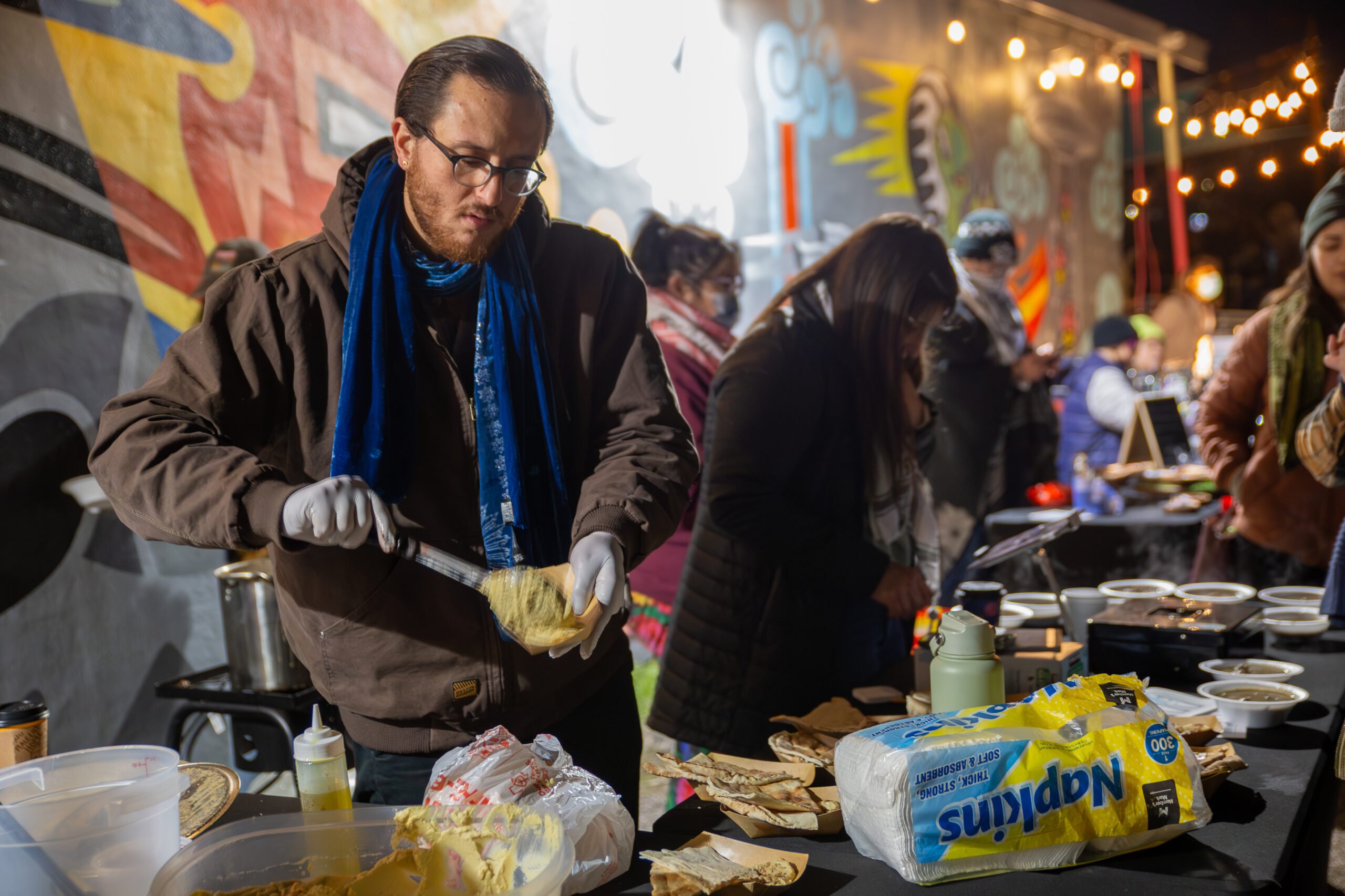
Back in San Antonio, savory-scented steam rises from a stockpot of sumaqiyya, a classic Gazan stew spiced with tangy sumac. A four-person crew with a Palestinian food pop-up called Saha ladles out the dish, along with pita and hummus. Moureen Kaki, Saha’s proprietor, says she’s paused operations since October 7 other than for events focused on the Gaza crisis—even though she knows there’s a flood of potential customers looking to support Palestinian-owned businesses. “I felt weird because I don’t need people giving me more business because my people are getting genocided,” she says. “But for an event like this, it feels kind of good.”
Judith Norman, a philosophy professor and organizer with the pro-Palestine group Jewish Voice for Peace, oversees a nearby table topped with political pamphlets, “Free Palestine” stickers, and flowers.
“When I started to get involved in organizing … I had a lot of compassion for and empathy for Palestinians, but I just saw them as victims,” she says. “And it really sort of turned things around when a lot of Palestine events were stressing joy and resiliency and culture and Palestine as not something [where] you’re fighting against Israel but fighting for.”
One pamphlet outlines the call for San Antonio City Council to pass a resolution demanding a ceasefire in Gaza, a thus-far unsuccessful effort led by SAJP. The tract also details other entanglements between San Antonio and the far-off conflict, including trainings in Israel of Bexar County law enforcement officials and the local presence of military contractors. SAJP is trying to focus criticism on Caterpillar, the massive maker of construction equipment, which provides armored bulldozers to the Israeli army and has multiple facilities in the San Antonio area.
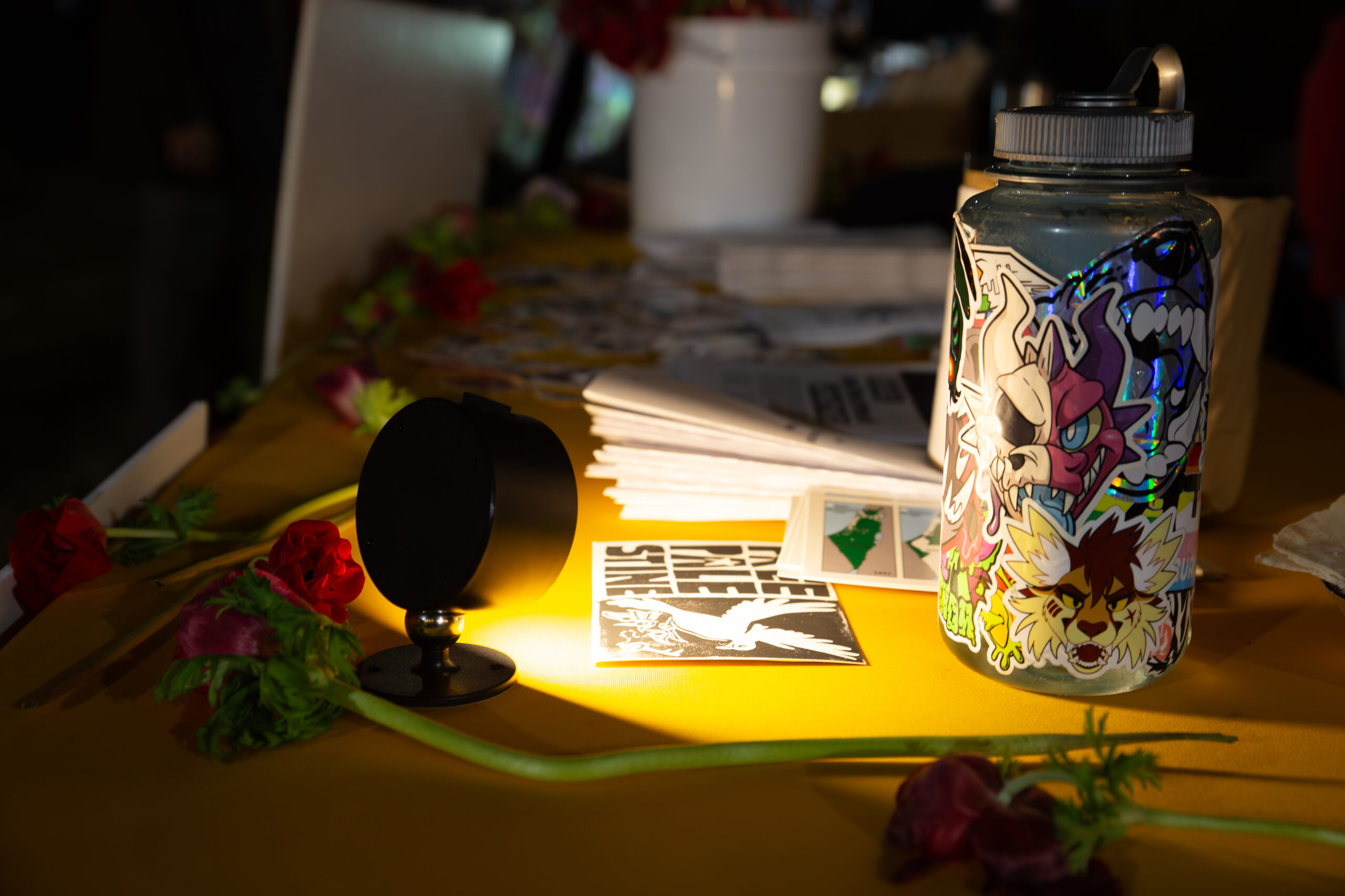
At another table, local artist Alexa Wilson displays her work: intricate drawings of solvable mazes forming a variety of shapes including, in one case, the Palestinian flag. Since October, she says, her eyes have been opened to injustice in Palestine.
“The work that I do is mostly mazes, but I have this theme of how mazes are life. We’re all living through these; there’s only one way in and there’s one way out, and it’s up to us to determine which way we’re going,” Wilson explains. “And the people in Gaza are experiencing their own brutal maze right now. … It’s not clear what the way out is, but there is an end, and I’m hoping that there is, like, a light—a good end.”
